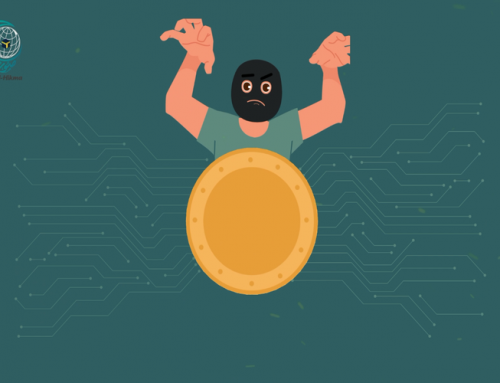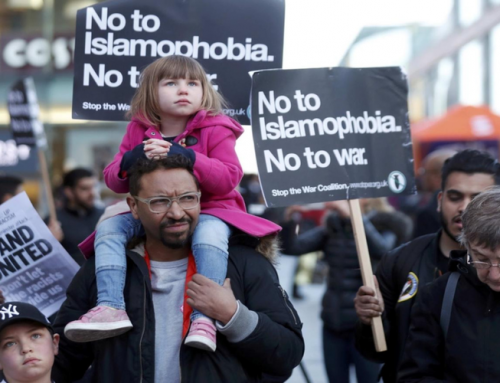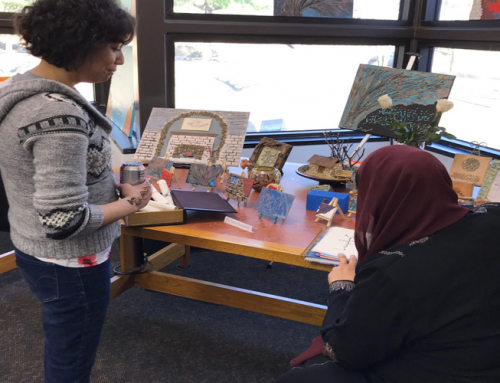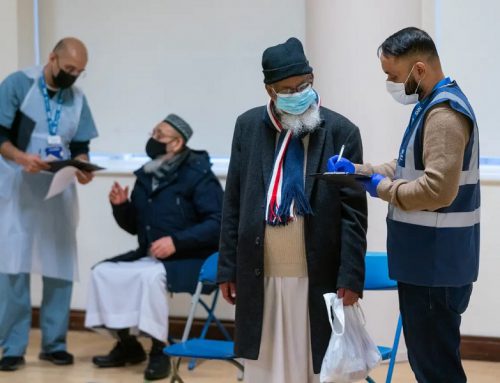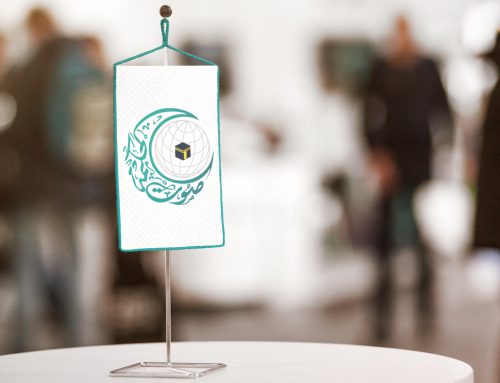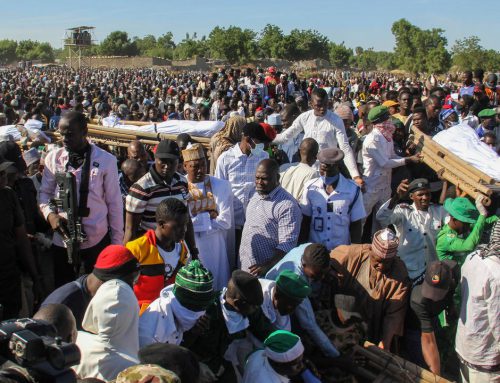Terrorism: Religious or Political?
Every civilized nation and their citizens share the conviction that terrorism is an evil act that needs to be deplored, condemned and abhorred. Every one agrees that it is a global and national obligation and responsibility to combat terrorism, and that all nations should act and work together to fight terrorism. The problem, however, emerges when nations differ on how to address the threat and even disagree on what constitutes “terrorism.” The picture becomes even more complicated when an adjective –which currently refers to a particular religious dimension of the problem—is attached to the concept. In this regard, unfortunately, the world has become accustomed to speak about the presence of “Islamic terrorism” as if the two words –Islam and terrorism—give a mutually reinforcing meaning to each other.
From the Islamic perspective, it is very clear that terrorism of all kinds is an evil and in contradiction with the very teachings of Islam which emphasize love, mercy and peace. Islam is a religion of peace (din al-salamah). It is imperative for Muslim from the Qur`an to engage in peace as well as to enter peace wholeheartedly. “Oh ye who believe! Come, all of you, into peace, and follow not the footsteps of the devil. Lo! He is an open enemy for you” (Chapter II: 208). Terrorism which creates fears and kills innocent people is strongly prohibited in Islam, as the Qur`an stated: “… that whosoever killeth a human being for other than manslaughter or corruption in the earth, it shall be as he had killed all mankind, and whoso saveth the life of one, it shall be as if he had saved the life of all mankind …” (Chapter V: 32).
In this context, terrorism has no relation and root in religion, particularly in Islam. And, the fight against terrorism would not be effective if we cannot think clearly about what we mean by terrorism and what motivates a terrorist act. In other words, the fight against terrorism requires an understanding about the nature of terrorism. This is not an easy task. Before September 11, the debate and discourse on terrorism had focused on the definition of terrorism itself; a debate that has not been resolved even until now. After September 11, the debate has received additional dimension, namely, on the nature of terrorism: is it religious or political?
The Problem of Understanding
The complexity of the problem is soon evident when we are confronted with the fact that there are at least 16 different definitions of “terrorism”. In the US, for example, different state institutions use different definitions of terrorism. The State Department, Department of Defense, and the FBI uses offer different definitions of terrorism. The United Nations (UN) itself has been locked in a prolonged debate to find a consensus on what terrorism means.
However, it seems that there is a degree of consensus that terrorism, regardless under what name it is waged—be it religious, ethnic nationalism or an ideology—always has a political purpose behind it. It uses violence in order to create fear, and the target is random. The purpose is to create a political change.
The complexity of the problem of terrorism increases when the concept is used in conjunction with the word “Islamic” as an adjective. Here, the notion of “Islamic terrorism” could suggest two meanings. First, it represents a notion about the existence of a religious-motivated terrorist act. Second, it could also presuppose the existence of a religion that propagates terrorism. While the first notion could be easily misunderstood, the second one clearly flaws. It is often misunderstood because religious arguments can in fact be used to justify an act of violence, including terrorism. However, it should be noted also that in such cases, certain aspects of religious teachings used to justify terrorism always become a subject of contestation. In other words, it represents a case of misuse and abuse of religion. It is a flaw because no religion condones and propagates acts of terrorism.
In that context, it is indeed a serious and fatal error to equate terrorism and Islam simply because the terrorists justify their evil acts in the language of Islamic discourse. Indeed, Muslims around the world are obliged to defend their religion from such misuse and abuse of Islam by terrorists. It is the obligation of all Muslims to make sure that their religion to be understood as a great religion that teaches preaches and practices tolerance, non-violence, moderation and peace.
From the above discussion, it can be said that terrorism could be both “religious” and “political.” It is “religious because there have been cases of the misuse and abuses of religion in order to justify the terrorist acts. It is also political because the purpose of terrorist acts has always been to achieve certain political goal.
The Problem of Contemporary Terrorism
Now, let us turn to the problem of contemporary terrorism. As mentioned earlier, it is unfortunate that many, especially in the West, have tended to link today’s terrorism with Islam. Indeed, the misleading notion of “Islamic terrorism,” as it is often used by the international media, usually refers to the phenomenon in the Muslim world, from the Middle East to Southeast Asia. This has been exemplified by the discourse on al-Qaeda, Jamaah Islamiyah, and other groups that have been labeled as terrorist groups. Some resistance and insurgence groups in Iraq have also been put into this category. If we are to consider whether the contemporary terrorism is “political” or “religious,” then the answer is both.
The political nature of contemporary terrorism should be considered from two angles, both in terms of motivation and purpose. Most acts of terrorism, for example, have been carried out against the US or US interests around the world, Those attacks were often framed by the perpetrators within the language of grievances and resentments against what they perceived as injustice towards the Muslim world. They can also be seen as an extreme reaction or response towards what they perceive as a dominant hegemonic power. In this context, terrorism is often meant as an instrument to affect policy change, thus “political.” However, regardless the end goal that wants to be achieved, such terrorist acts and the use of violence against innocent civilians should never be condoned. An end should never justify the means, and all terrorist acts should be condemned.
It is also “religious” because acts of violence are also carried out in the name of Islam, by using the syntax of Islam. The use, or misuse and abuse, of the language of jihad, for example, becomes the most common form of injecting a sense of religious duty and obligation into those acts of violence. While, jihad, as an important Islamic doctrine, has the connotation of doing the best efforts in the seek for noblest aim. Indonesian Muslims, for example, are all too familiar with the abuses of religion for justifying an act of violence, both carried out in the name of Islam and for achieving a political goal. Indeed, it is the duty of Islamic leaders, ulama, scholars, and even every single individual Muslim to ensure that Islam would not be easily manipulated by misguided mind. Our main obligation is, therefore, to ensure that Islam is correctly understood by the Muslims.
The most worrying aspect of the problems created by contemporary terrorism has been the danger of the clash of civilization along religious line. One such danger can be easily found within the tension between the Muslim world and the West, between Islam and Christianity, and between Islam and Judaism. This disquieting development should surely come to our attention because no one would like to see the emergence of inter-civilizational conflict, especially along religious line.
Unfortunately, the fight against terror has also created disturbing developments. War, which we thought to be obsolete, continues to be treated by some countries as a major instrument to deal with the problem of terrorism. In the era of globalization, we should do our best to renounce war as a means of conflict-resolution. Through war, human kind would not accomplish anything but misery.
As mentioned earlier, every one shares the view that terrorism poses a serious challenge to all of us. We, Indonesians, ourselves are also the victims of such heinous crime. We also condemn and abhor the use of religious languages to justify terrorist acts. However, the fight against terrorism should not be diluted by misperceptions about the nature of the problem. We believe that terrorism is against any religion. Linking terrorism with Islam, for example, would only undermine our common stand and efforts to combat terrorism around the globe. We should not vindicate Huntington’s prophecy of the clash of civilizations.
Terrorism is best dealt with through a common endeavor to address the root causes of the problem. We should ensure hatred would disappear when justice prevails. Apprehension will evaporate when mutual respect triumphs. Mutual respects and tolerance among religions and civilizations is a key to this. The absence of respect and tolerance, as demonstrated by the case of Prophet Muhammad cartoon controversy, would undermine civilization. The sanctity of religion should be upheld, and freedom of ex
In this context, it is pertinent for the Muslims, as an ummah of middle path (ummatan wasathan) to face the challenges of the world today as opportunities for the Muslims to present Islam as a religion of peace. There is no better way for us except to fulfill what Allah has commanded us: “Thus We have appointed you a middle nation, that ye may be witness against mankind …” (Chapter II: 143).
Way Forwards: Mutual Respect,
Interfaith Cooperation and Civilizational Dialogue
The need for bridging the Muslim world and the West continues to be a defining agenda of the day.
This current reality clearly points to the imperative of not only doing more, but also doing it right. So much has been done to address the problem. But, progresses have not been entirely satisfactory. However, it would be misleading also to claim that the ongoing initiatives on inter-faith dialogues or dialogues among civilizations are no more than pointless exercises. These dialogues do create a greater space for mutual learning process. They expand the boundary of mutual understanding among people from different religious and civilizational background.
Various initiatives in this area have also reminded states that religion and religious leaders do have a positive role to play in international relations. Religion does serve as a source of values and norms that could provide guidance for a healthy inter-state relations based on mutual understanding, mutual respects, and equality. Those dialogues also serve as a venue for religious leaders to articulate their aspiration for a peaceful and just world. At grass-root level, inter-faith dialogues can provide the basis for peace among communities of different religions. Dialogues could remove mutual suspicions which often result from ignorance, lack of knowledge about each others, and the absence of mutual respect.
However, problems remain abundant with regard to the ongoing inter-faith dialogues and dialogue of civilizations. The key obstacle in using inter-faith dialogues as an instrument to address the problem between the Muslim world and the West is the gap between the ideal world of religious actors on the one hand, and the cruel world of political players. Inter-faith dialogues have often been constrained by the gap between society and the state. When religious actors work hard to create a better world based on mutual understanding and mutual respect among different faiths, the results of the works by political actors tend to undermine it, intentionally or not. When religious actors advocate the method of peace, political actors continue to value the utility of force and even war. When religious actors emphasize national and global spirituality, political actors exaggerate the importance of national and global security.
Second, the conversation between Islam and the West tends to be one-sided. It is important to acknowledge that the attention and the focus more on how to understand Islam. Implicit in this reality is the assumption that Islam needs to be understood because the problem is to be found within this community of ummah. Bernard Lewis, for example, has asked: what’s wrong with Islam? Others have questioned whether Islam will ever accept the reality of the West and therefore co-exist with it in a peaceful and productive way. Worse, there have also been questions raised in the West on how to deal with the so-called “Islamic threat.” Constructed in this way, it would be difficult for any dialogue to produce fruitful results. The Muslim community is then cornered to a defensive position, trying hard to explain that their religion is indeed a religion of peace and poses no threat to any other religion.
Third, the transformation of the world major power to launch war on terror, which in turn encouraged Islamophobia in many Western countries has exacerbated the problem of inter-civilization relations. The use of force as an instrument of conflict resolution and the primacy of prejudices in dealing with the Muslim world have created an impression that the West is using the War on Terror as a disguise for an anti-Islam attitude. The combination between unfair treatment of Muslims and the Muslim world by the West and the disillusionment of Muslims in many Arab/Muslim despotic states has served as a recipe for civilizational calamity. When the perceived arrogance of the West meets with the predicament of Muslim world, the future of harmonious relations between Islam and the West has been put in jeopardy. In other words, the war on terror and then the Islamophobia has undermined the relationship between Islam and the West.
So, what more to be done? Let me offer a few thought regarding this matter. First, there is a need to reform our mindset and our way of thinking. Here, a paradigmatic shift is necessary. Instead of looking at the problem through the framework of “clash of civilization”, we need to advocate the framework of “alliance of civilization”. Within this paradigm, a way of thinking that juxtaposes Islam and the West becomes an irrelevant exercise. Islam and the West should not be seen as a binary opposition. Islam and the West should be seen as the pillars of a common global civilization. Islam and the West should be treated as two forces that compliment each other in ensuring and preserving the future of mankind. Islam and the West should be seen as partners in a common struggle to preserve the sanctity of religion as a source of values for mankind. Islam and the West should work together to prevent the use of religion as a political tool in the quest for supremacy among nations. In fact, the quest for supremacy among nations should be removed from any nation’s agenda.
Second, in order for any mutual understanding to prevail, it is necessary to conduct dialogues in a context of equality. Dialogues should proceed from the presence of mutual eagerness to learn and understand about each other. Society-driven dialogues, especially among religious leaders themselves, have to a certain extent managed to conduct inter-faith dialogues on this basis. When the gap between declaratory intention and the actual policies remains wide, the utility of inter-faith dialogues would gradually be questioned. If this happens, then it would be difficult to sustain the progress that has been achieved so far through various initiatives of inter-faith dialogues.
Third, the problem in the relationship between the Muslim world and the West could be resolved if there is a parallel efforts by both religious and political leaders. Religious leaders should provide an atmosphere of spirituality for better mutual understanding and mutual respect, while political leaders should work to eliminate global injustices. Religious leaders should advocate a genuine adherence to religious principles and norms, while political leaders should avoid the practice of double standards in pursuing their politics. There should be no gap between words and deeds. Indeed, the root causes of the tension between the Muslim world and the West can be among others found within the persistent global injustice. We should work together to eliminate this global injustice, which serves as a structural cause to the global tension. The West is in a better position to address this problem.
Finally, the elimination of global injustice alone cannot guarantee the birth of a world free from any tension and conflict between the Muslim world and the West. The Muslim world has its own predicament also. Many Muslims, in fact the majority of Muslims, continue to live within the control of despotic regimes and authoritarian states. This characteristic of most of the Muslim world need to be addressed by both Muslim population and Muslim rulers. Respects for human rights, and a democratic political order, is the path that all of us should take. Freedom is an essence of Islamic teaching. Islam teaches and preaches that human beings should be liberated from exploitation by other human beings. The creation of a political order that ensures and respects human dignity should be made a priority by Muslim rulers. Genuine tolerance, and a sense of self-confidence among the population, can only prevail in a truly democratic order.
Indeed, a better world requires changes both in the West and in the Muslim world. These changes do not have to be come in a separate process. Both the Muslim world and the West should, and can, work together in addressing and removing the impediments to progress within both civilizations. It only requires an open mind and a genuine effort. The problem is, open mind and genuine effort is still hard to come by. However, we are all forbidden from loosing hope. It is this hope that will ensure the utility of every single step that we are all taking in order to bridge the West and the Muslim world. It is through the preservation of hope that life continues to be meaningful.
*Dr. Din Syamsuddin is a well-known politician and religious scholar of Indonesia.

